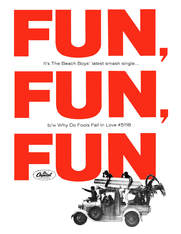| | "Theme from A Summer Place" is a song with lyrics by Mack Discant and music by Max Steiner, written for the 1959 film A Summer Place, which starred Sandra Dee and Troy Donahue. It was recorded for the film as an instrumental by Hugo Winterhalter. Originally known as the "Molly and Johnny Theme", the piece is not the main title theme of the film, but a secondary love theme for the characters played by Dee and Donahue. |
| "A Thing Called Love" is a song written and originally recorded by Jerry Reed[2] in 1968. This song has been recorded by many artists, including Jimmy Dean, Elvis Presley, and Dave Dudley. In 1971, the song was recorded by Johnny Cash and it became a #1 hit in Canada. The record was Cash's biggest hit in Europe, charting in Ireland, the United Kingdom, and the Netherlands. | |
| | "Stoned Soul Picnic" is a 1968 song by Laura Nyro. The best-known version of the song was recorded by The 5th Dimension, and was the first single released from their album of the same title. It was the most successful single from that album, reaching #3 on the U.S. Pop chart[1] and #2 on the Billboard R&B chart. It became a platinum record. |
| "The Entertainer" is a 1902 classic piano rag written by Scott Joplin.[1] It was sold first as sheet music, and in the 1910s as piano rolls that would play on player pianos.[1] It was used as the theme music for the 1973 Oscar-winning film The Sting. Composer and pianist Marvin Hamlisch's adaptation reached #3 on the Billboard pop chart and spent a week at #1 on the easy listening chart in 1974.[2] | |
That's the flipSide
Harv









